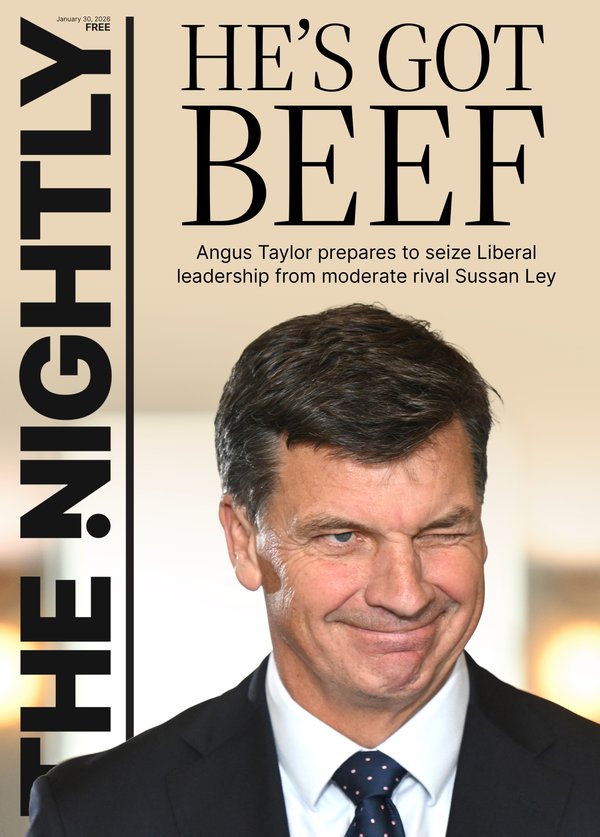KATE EMERY: Conspiracy theories may be the bigger danger than Thomas Matthew Crooks or even Donald Trump
KATE EMERY: It was a staged plot from inside Donald Trump’s camp, designed to make him appear like a hero. Or was it the Democrats, looking to do what Joe Biden could not, and knock Mr Trump out of the race.
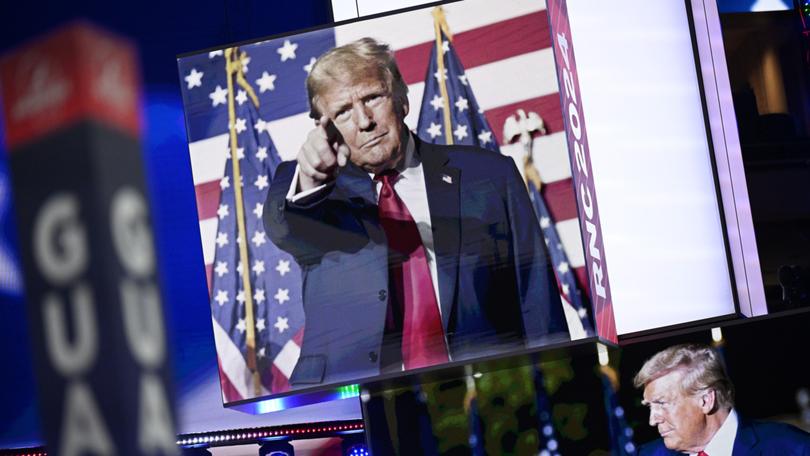
It was a staged plot from Donald Trump’s camp, designed to make him appear like a would-be martyr.
C’mon, you all saw that fist pump: who has that kind of political instinct when taking fire?
It was the Democrats, looking to do what US President Joe Biden looks increasingly unlikely to achieve and keep Mr Trump from regaining the presidency in November.
Sign up to The Nightly's newsletters.
Get the first look at the digital newspaper, curated daily stories and breaking headlines delivered to your inbox.
By continuing you agree to our Terms and Privacy Policy.You know it’s their only hope.
Actually, you’re all wrong: it was the deep state.
I should know: I read it on the internet.
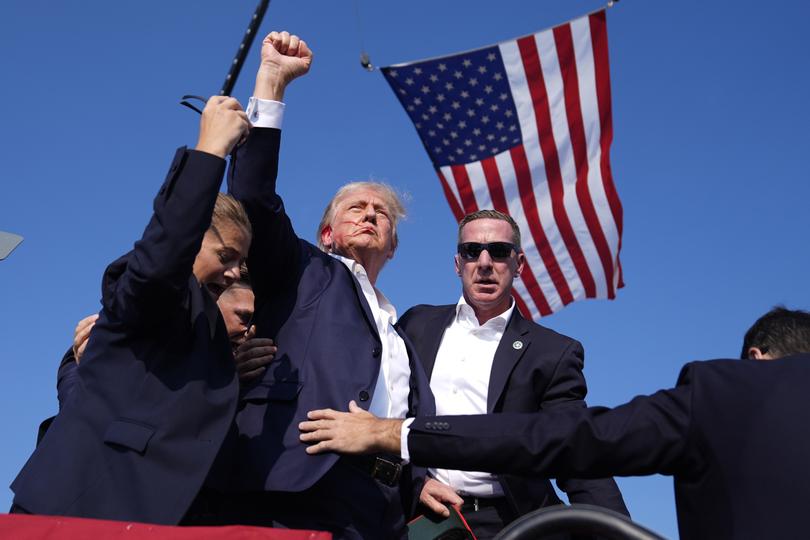
More dangerous even than a man with a rifle on the roof of a Pennsylvanian manufacturing plant was the misinformation and disinformation that rushed to fill the void after the failed assassination attempt on Donald Trump.
As is inevitably the case with breaking news of this magnitude, the first reports of the assassination attempt were light on detail. Shots had been fired (probably). Mr Trump was bleeding (likely). Someone in the crowd was dead (it appeared).
The world, not unreasonably, wanted to know what was happening, and a lack of facts wasn’t exactly an impediment to those keen to offer answers.
Misinformation, that’s bad information shared in ignorance, and disinformation, also bad information but shared maliciously, went halfway around the world before the truth had its pants on — to paraphrase Winston Churchill. Sir Churchill, by the way, saw off a number of assassination attempts and plans, not least of which was a Nazi plot to send him a bar of exploding chocolate. (Not the worst way to go, if I’m honest.)
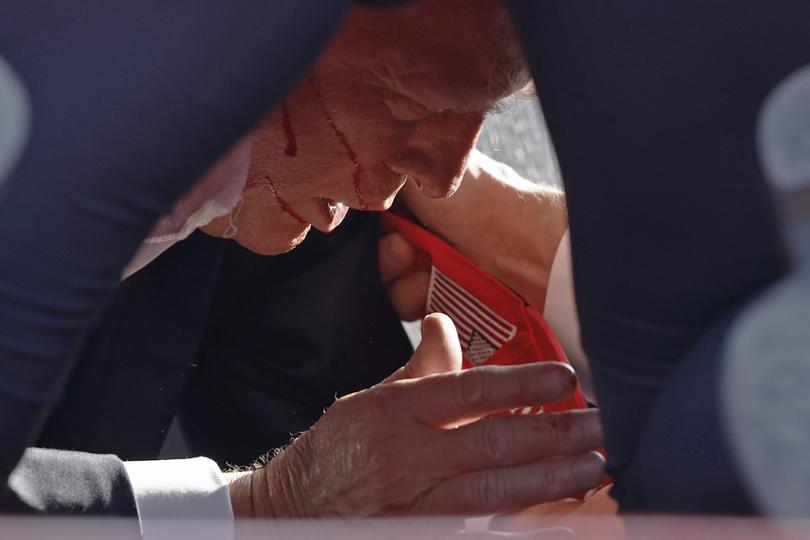
Despite widespread video footage of the incident, the death of a bystander and a frankly terrific BBC interview with an eyewitness who said he warned police about the lone shooter well before shots were fired, hitherto unsuspected armchair experts on everything from US Secret Service protocol to bullet wounds emerged online to explain why it was rubber bullets, tomato sauce or a botched CIA hit job.
Otherwise, it was clearly #staged by Mr Trump or Russian President Vladimir Putin or both. That theory was not just trending on social media but being fuelled by Dmitri Mehlhorn, the top political adviser to prominent Democratic donor Reid Hoffman. In an email Mr Mehlhorn, suggested the shooting was “encouraged and maybe even staged so Trump would get the photos and benefit from the backlash”.
Some of those spreading more bulls..t than a rodeo would have done so in an attempt to weaponise the attack for their own political purpose.
Others were in it for social media eyeballs.
Some — I could name names but I’d really rather not risk driving even a single extra victim into their arms — did it because they’re nuttier than a jar of Nutella.
Misinformation and conspiracy theories have always existed, usually at the political fringe.
Given that John F Kennedy’s assassination is still the subject of conspiracy theories, 61 years and more than 1000 books on the subject later, it’s not exactly a shocker that an assassination attempt on the frontrunner in a race to be the leader of the free world might receive the same treatment.
That it happened so quickly — and on both sides of the political spectrum — is just indicative of the world we live in.
The internet and social media get a bad rap when it comes to fuelling and spreading conspiracy theories.
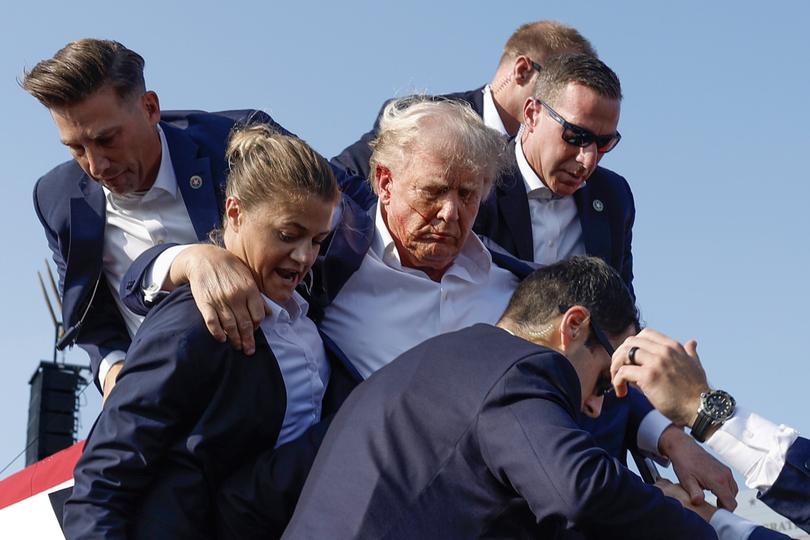
It’s true that the stranger in a tin-foil beanie who might once have had their nonsensical ramblings confined to the bus stop or the bar stool now have a bigger megaphone on Reddit, Telegram or YouTube, where they can be found sharing theories with other, similarly polarised, fringe-dwellers. The more presentable and charismatic of these guys make it onto US cable news.
But conspiracy theories — JFK, the moon landing and what really happened at Roswell for starters — pre-dated the web. One 1975 poll suggested 80 per cent of Americans believed JFK’s assassination was a conspiracy and those poor suckers had never even thrilled to the siren song of a dial-up modem.
The spread of misinformation and disinformation has two effects — both of them bad.
The most obvious problem is that some people believe the lies.
That’s why 31 per cent of Americans think Barack Obama wasn’t born in the US, 20 per cent believe the US Government was behind 9/11 and 23 per cent believe mass shootings are faked by gun control advocates.
The less obvious, arguably more dangerous, effect is that the flood of misinformation and disinformation seeds distrust across the board, so people feel like they can’t trust anything they read or see, regardless of whether it’s coming to them from a Facebook meme or the nightly news.
It’s not so much that they believe the lies but that they can’t recognise the truth.
That might be a bigger danger to Western democracy than either the Pennsylvanian shooter, Thomas Matthew Crooks, or even Mr Trump himself.
